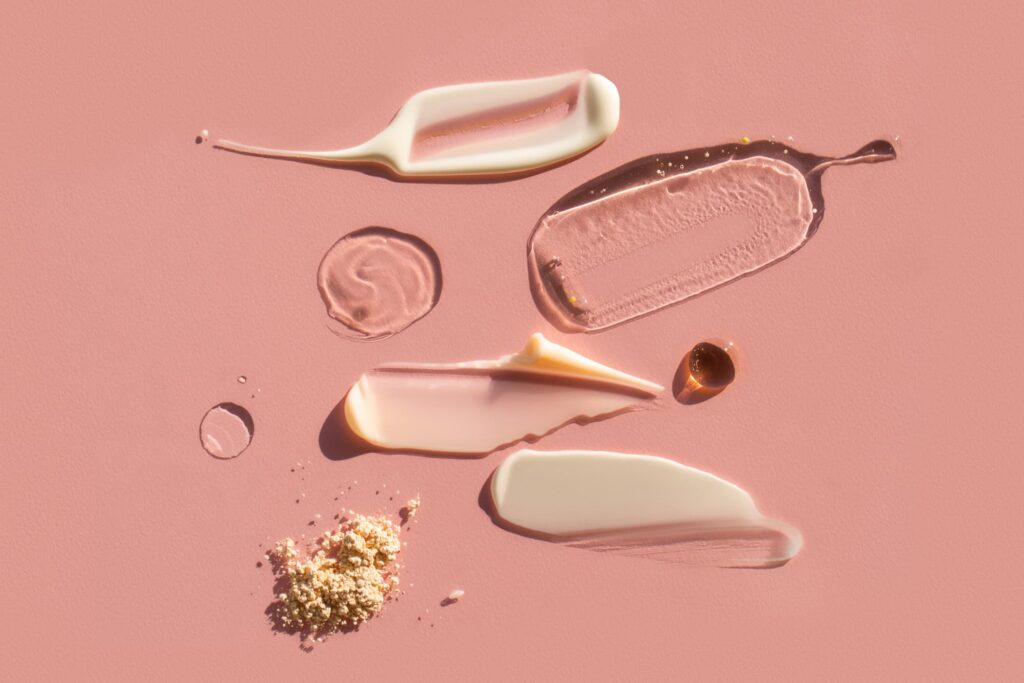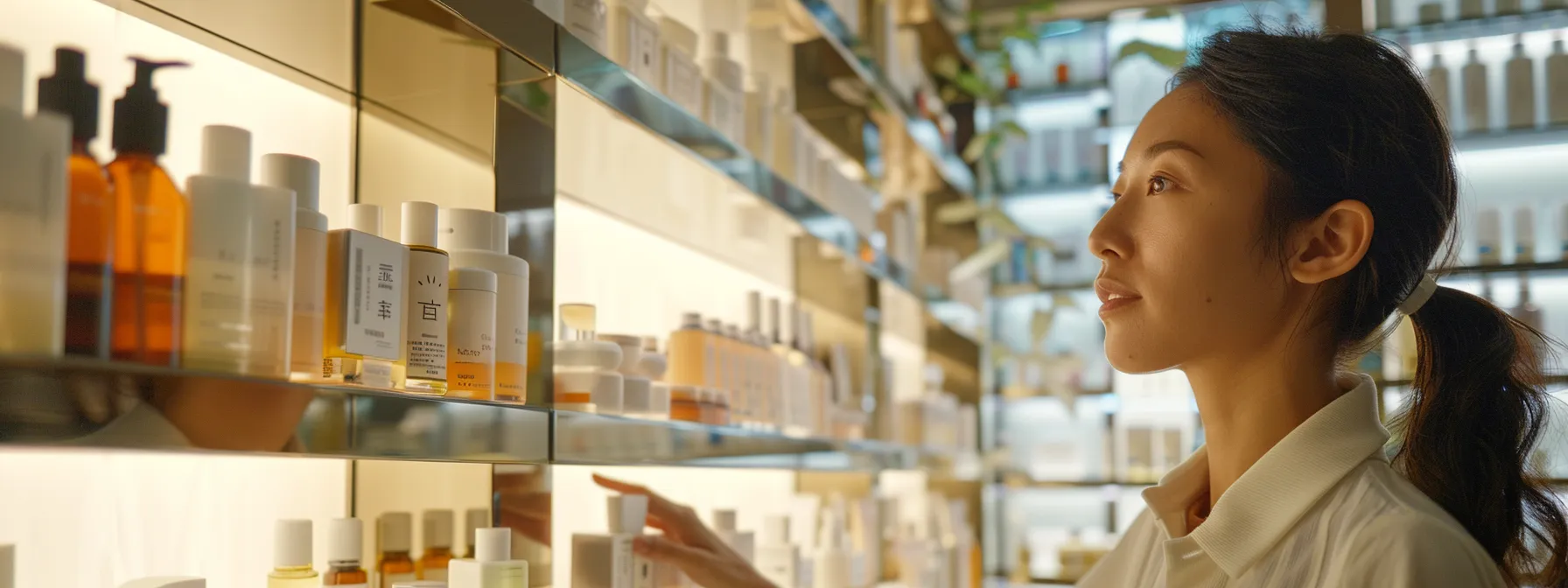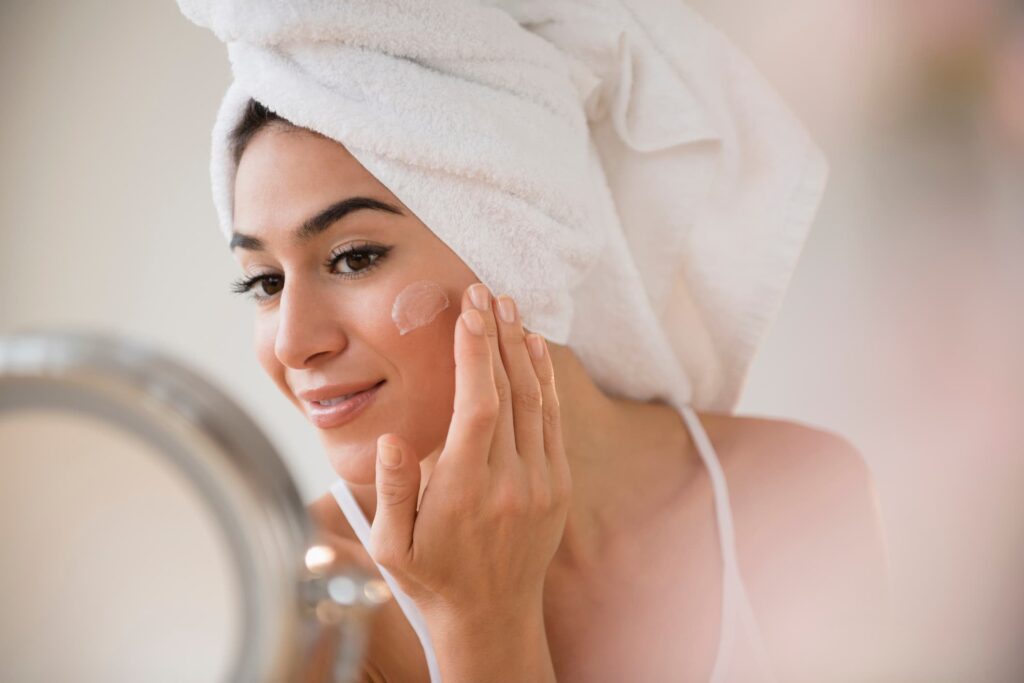Are you tired of looking in the mirror and seeing wrinkles staring back at you? Crafting an effective anti-aging skin care routine can help combat signs of aging and restore your skin’s youthful glow. This guide will reveal top products and key ingredients for fighting wrinkles, maintaining moisture, and addressing common concerns like itchy skin. We’ll cover the basics of skin aging, essential anti-aging ingredients, and how to build a daily routine tailored to your needs. Plus, we’ll touch on complementary treatments like laser hair removal to enhance your overall skin health.
Key Takeaways
- Start an anti-aging skincare routine in your mid-20s to early 30s for best results
- Consistency is key for long-term results in anti-aging skincare routines
- Protect skin from environmental stressors with sunscreen and antioxidant-rich products
- Choose gentle, fragrance-free products for sensitive skin to minimize irritation
- Consult a dermatologist for personalized anti-aging treatment plans and advanced procedures
Understanding the Basics of Skin Aging

Skin aging is a natural process influenced by various factors. Understanding the early signs, such as fine lines and uneven texture, can help in developing an effective anti-aging routine. Factors like sun exposure and lifestyle choices can accelerate aging, while genetics play a role in how skin ages. A preventative approach, including proper hydration and stress management, is key to maintaining youthful-looking skin. Regular skin evaluations can help identify and address concerns like psoriasis early on.
Recognizing the Early Signs of Aging Skin
The early signs of aging skin often appear subtly, starting with fine lines around the eyes and mouth. As collagen production slows, skin may lose its firmness, leading to increased transepidermal water loss and a dull complexion. Exposure to light, particularly UV rays, can accelerate these changes, making the use of vitamin C and sunscreen crucial. Poor sleep habits can exacerbate aging signs, while incorporating salicylic acid in skincare routines can help maintain skin clarity and texture.
Factors That Contribute to Premature Aging
Several factors contribute to premature aging of the skin, affecting its elasticity and overall health. Prolonged sun exposure damages the epidermis, accelerating the breakdown of collagen and elastin fibers. Smoking, poor diet, and lack of sleep can also speed up the ageing process at a cellular level. While genetics play a role, lifestyle choices significantly impact how quickly skin shows signs of aging. Regular use of sunscreen and targeted treatments like laser therapy can help combat these effects and maintain a youthful appearance.
The Role of Genetics in Skin Aging
Genetics play a significant role in how skin ages, influencing factors like collagen production and skin cancer risk. While everyone’s skin changes over time, some individuals may be more prone to premature aging due to their genetic makeup. However, even with a genetic predisposition, proper skincare routines can make a difference. Using products containing tretinoin, a powerful anti-aging ingredient, can help improve skin texture and reduce fine lines. Regular application of lotion and sunscreen can protect the human skin from environmental damage, enhancing the efficacy of anti-aging treatments and potentially delaying the onset of genetic aging factors.
Importance of a Preventative Approach
A preventative approach to skin aging is crucial for maintaining youthful-looking skin. By incorporating a targeted serum into a daily routine, individuals can protect their skin’s DNA from damage caused by pollution and photoaging. Regular use of protective products, combined with healthy lifestyle choices, can significantly slow down the visible signs of aging, even extending to nail health. This proactive strategy helps preserve skin’s elasticity and radiance, reducing the need for more invasive treatments later on.
Key Ingredients for Effective Anti-Aging Care

Effective anti-aging care relies on key ingredients that target specific skin concerns. Retinoids promote skin renewal, while antioxidants like vitamins C and E combat free radicals. Hyaluronic acid provides deep hydration, and peptides support collagen production. Alpha and beta hydroxy acids exfoliate, addressing hyperpigmentation and improving skin texture. These components work together to reduce signs of aging, including stretch marks and ultraviolet damage, while supporting elastin production.
Retinoids for Skin Renewal
Retinoids, powerful derivatives of vitamin A, are essential for skin renewal in anti-aging routines. These compounds work in vivo to boost cell turnover, promote collagen production, and improve skin texture. When combined with ceramides and glycolic acid, retinoids enhance skin health and address various signs of aging, including fine lines around the eye area. Their effectiveness in stimulating skin renewal makes retinoids a cornerstone of many anti-aging regimens:
| Retinoid Type | Strength | Best For |
|---|---|---|
| Retinol | Mild | Beginners, Sensitive Skin |
| Tretinoin | Strong | Acne, Advanced Aging |
| Adapalene | Moderate | Acne, Mild Aging Signs |
Antioxidants Like Vitamin C and E
Antioxidants like Vitamin C and E play a crucial role in anti-aging skincare by protecting the skin from free radical damage. These nutrients work together to neutralize harmful molecules that can break down collagen and elastin, two essential proteins for maintaining youthful skin. While Vitamin C brightens and evens skin tone, Vitamin E helps to moisturize and strengthen the skin barrier. When combined with peptides and alpha hydroxy acids, these antioxidants create a powerful defense against premature aging, even for those with sensitive skin or allergies:
- Vitamin C: Brightens skin and boosts collagen production
- Vitamin E: Moisturizes and protects against environmental damage
- Peptides: Signal skin to produce more collagen
- Alpha Hydroxy Acids: Exfoliate and improve skin texture
Hyaluronic Acid for Deep Hydration
Hyaluronic acid is a powerhouse ingredient for deep hydration in anti-aging skincare routines. This molecule can hold up to 1000 times its weight in water, providing intense moisture to the skin. For patients seeking to improve skin radiance and combat signs of aging, hyaluronic acid offers a non-invasive solution that can even benefit those recovering from skin cancer treatments. It works by attracting water to the skin’s surface, plumping fine lines and wrinkles while supporting the skin’s natural barrier function. This hydration boost can also help protect against environmental stressors and reduce the risk of infection:
- Attracts and retains moisture in the skin
- Plumps fine lines and wrinkles
- Supports skin barrier function
- Enhances skin’s natural enzyme activity
- Promotes a healthy, radiant complexion
Peptides to Support Collagen Production
Peptides play a crucial role in supporting collagen production, making them a vital ingredient in anti-aging skincare routines. These short chains of amino acids signal the skin to produce more collagen, helping to improve skin elasticity and reduce the appearance of fine lines and wrinkles. While peptides work wonders for the face, they can also benefit the scalp and hair, promoting a healthy microbiome and stronger hair growth. When combined with sunscreen, peptides offer enhanced protection against UV damage, making them a versatile addition to any skincare regimen found on platforms like Amazon.
Alpha and Beta Hydroxy Acids for Exfoliation
Alpha and beta hydroxy acids (AHAs and BHAs) are powerful exfoliants that play a crucial role in anti-aging skincare routines. These acids work by gently removing dead skin cells, promoting cell turnover, and improving skin texture. While AHAs like glycolic acid are water-soluble and work on the skin’s surface, BHAs like salicylic acid penetrate deeper into pores. Both acids help maintain the skin’s pH balance and can be found in various products, from toners to serums. When incorporating these acids into a routine, it’s essential to use sunscreen, as they can increase sun sensitivity. Some AHAs and BHAs can be combined with other active ingredients like benzoyl peroxide for enhanced results, but it’s important to introduce them gradually to avoid irritation:
- AHAs: Glycolic acid, lactic acid, mandelic acid
- BHAs: Salicylic acid
- Benefits: Exfoliation, improved texture, reduced fine lines
- Precautions: Use sunscreen, introduce gradually
- Complementary ingredients: Benzoyl peroxide, hyaluronic acid
Selecting the Right Anti-Aging Products

Selecting the right anti-aging products involves choosing gentle cleansers, targeted serums, and hydrating moisturizers. Incorporating broad-spectrum sunscreen is crucial for protecting sensitive skin and preventing gene damage from radiation. Specialized treatments for delicate areas, like lips, can include vitamin E-rich formulas. This approach ensures a comprehensive routine tailored to individual skin needs.
Choosing a Gentle Cleanser Suitable for Your Skin Type
Choosing a gentle cleanser suitable for your skin type is crucial in an anti-aging skincare routine. A mild cleanser removes impurities, air pollution, and makeup without stripping the skin’s natural oils. Look for antioxidant-rich formulas that protect the face from environmental stressors while maintaining the skin’s water balance. Beauty experts recommend cleansers with hydrating ingredients for mature skin types:
- Cream cleansers for dry or sensitive skin
- Gel cleansers for combination or oily skin
- Micellar water for all skin types, especially sensitive
- Oil-based cleansers for removing heavy makeup
- Foaming cleansers for normal to oily skin
Incorporating Serums to Target Specific Concerns
Incorporating serums into an anti-aging skincare routine allows for targeted treatment of specific concerns. Retinol-based serums effectively combat fine lines and wrinkles, while antioxidant-rich formulas protect against oxidative stress. For those prone to irritation, gentle ingredients like niacinamide can soothe and strengthen the skin barrier. When selecting a serum, it’s crucial to consider individual skin needs and potential sensitivities, especially before a facial treatment. By choosing the right serum, individuals can address their unique skin concerns and enhance their overall anti-aging regimen.
Finding a Moisturizer That Locks in Hydration
Finding a moisturizer that locks in hydration is crucial for an effective anti-aging skincare routine. Look for products containing hyaluronic acid, which can hold up to 1000 times its weight in water, helping to plump the skin and reduce the appearance of fine lines. Ceramides and glycerin are also key ingredients that support the skin’s natural barrier and prevent moisture loss. For those concerned about scarring or uneven skin texture, moisturizers with niacinamide can help improve skin metabolism and promote a more even complexion. When selecting a moisturizer, consider your skin type and specific concerns:
| Skin Type | Recommended Moisturizer Type | Key Ingredients |
|---|---|---|
| Dry | Rich cream | Hyaluronic acid, ceramides |
| Oily | Lightweight gel | Niacinamide, salicylic acid |
| Combination | Lotion | Glycerin, antioxidants |
| Sensitive | Fragrance-free cream | Aloe vera, colloidal oatmeal |
Importance of Broad-Spectrum Sunscreen
Broad-spectrum sunscreen plays a crucial role in any anti-aging skincare routine. It protects the skin from harmful UVA and UVB rays, which can cause premature aging, sunburn, and increase the risk of skin disease. Mineral-based sunscreens containing ingredients like zinc oxide or titanium dioxide offer effective protection while being gentle on sensitive skin. For optimal results, experts recommend using a sunscreen cream with an SPF of at least 30 daily, even on cloudy days:
| Sunscreen Type | Key Benefits | Best For |
|---|---|---|
| Mineral | Physical barrier, gentle on skin | Sensitive skin, children |
| Chemical | Absorbs UV rays, lightweight | Oily skin, daily wear |
| Tinted | Sun protection + light coverage | Makeup lovers, all skin types |
Specialized Treatments for Delicate Areas
Specialized treatments for delicate areas are essential in a comprehensive anti-aging skincare routine. Dermatologists recommend using gentle, targeted products for areas like the eyes and lips, which are prone to fine lines and wrinkles. The Skin Cancer Foundation advises paying extra attention to these areas when applying sunscreen. Products containing amino acids can help strengthen the delicate skin around the eyes, while those from trusted retailers like Dermstore offer a range of options for sensitive areas. For more dramatic results, some individuals may consider Botox treatments, which can temporarily reduce the appearance of wrinkles in specific facial zones.
Crafting Your Daily Anti-Aging Skin Care Routine

Crafting an effective anti-aging skincare routine involves specific steps for morning protection and evening repair. This section outlines how to layer products for maximum efficacy, adjust routines over time, and maintain consistency for long-term results. By incorporating key ingredients like collagen-boosting agents and exfoliants, while being mindful of skin conditions like dermatitis, individuals can develop a personalized care regimen that addresses their unique needs and promotes healthier, younger-looking skin.
Morning Routine Steps for Protecting the Skin
A morning anti-aging skincare routine should focus on protection and hydration. Cleansing with a gentle, pH-balanced cleanser removes overnight buildup without stripping the skin. Applying a serum containing hyaluronic acid, a powerful humectant, helps attract and retain moisture. For those concerned with acne or uneven texture, incorporating a product with lactic acid can gently exfoliate and brighten the complexion. Following up with a moisturizer rich in growth factors can stimulate collagen production and improve skin elasticity.
Evening Routine Steps for Repair and Renewal
An effective evening anti-aging routine focuses on repair and renewal. Starting with a gentle cleanser to remove makeup and daily grime, individuals can then apply a retinoid-based product to stimulate cell turnover and boost collagen production. For those with sensitive skin, alternating retinoids with vitamin C serums can help brighten the complexion without irritation. Finishing with a nourishing moisturizer containing seed oils and ceramides helps lock in hydration and supports skin barrier function. It’s important to avoid products with high alcohol content, which can dry out the skin:
| Step | Product Type | Key Ingredient |
|---|---|---|
| Cleanse | Gentle Cleanser | Micellar Water |
| Treat | Serum | Retinoid or Vitamin C |
| Moisturize | Night Cream | Seed Oils, Ceramides |
How to Layer Products for Maximum Efficacy
Layering products correctly maximizes their efficacy in an anti-aging skincare routine. Start with a gentle cleanser suitable for sensitive skin conditions like rosacea, followed by lightweight serums that penetrate the dermis. Apply targeted treatments for specific concerns, such as neck creams or wound-healing ointments, before sealing everything in with a moisturizer. This layering technique ensures each product works effectively, addressing various skin issues while promoting overall skin health.
Adjusting Your Routine Over Time
Adjusting an anti-aging skincare routine over time is crucial for maintaining healthy skin as it ages. As the skin’s needs change, individuals should incorporate products that focus on DNA repair and address inflammation, which can contribute to premature aging. Hair care should also be considered, as the scalp and hair can show signs of aging. By regularly assessing the skin’s condition and adapting the routine accordingly, people can ensure their skincare regimen remains effective in combating the signs of aging.
Tips for Consistency and Long-Term Results
Consistency is key for achieving long-term results in an anti-aging skincare routine. Experts at Lemel Medical Spa recommend sticking to a regimen for at least six to eight weeks before expecting visible improvements. Patients should use products as directed, applying them at the same time each day to establish a habit. For those with sensitive skin, gradually introducing new treatments can help minimize irritation and ensure continued use.
Enhancing Your Regimen With Lifestyle Choices

Enhancing an anti-aging skincare routine goes beyond products. This section explores how nutrition, hydration, stress management, physical activity, and protection from environmental stressors can significantly impact skin health. By incorporating these lifestyle choices, individuals can boost their skincare regimen’s effectiveness and achieve better long-term results.
Nutritional Habits That Support Skin Health
A balanced diet rich in antioxidants, vitamins, and minerals plays a crucial role in supporting skin health and combating signs of aging. Foods high in omega-3 fatty acids, like salmon and walnuts, help maintain skin elasticity and hydration. Incorporating colorful fruits and vegetables provides essential nutrients that protect against free radical damage and promote collagen production. Staying hydrated by drinking plenty of water throughout the day also contributes to plump, youthful-looking skin.
The Impact of Hydration on Skin Appearance
Proper hydration plays a crucial role in maintaining youthful-looking skin. When the body is well-hydrated, skin cells function optimally, leading to a plumper, more radiant complexion. Drinking adequate water throughout the day helps flush out toxins and supports the skin’s natural barrier function. For those seeking to enhance their anti-aging routine, incorporating hydrating treatments at Lemel Medical Spa can provide an extra boost to skin’s moisture levels:
| Hydration Method | Benefits | Frequency |
|---|---|---|
| Water intake | Flushes toxins, supports cell function | Daily, 8 glasses minimum |
| Hydrating facials | Deep moisture, plumping effect | Monthly |
| Humidifier use | Prevents moisture loss in dry environments | Nightly during sleep |
Stress Management Techniques for Better Skin
Effective stress management techniques can significantly improve skin health and slow down the aging process. Lemel Medical Spa recommends incorporating relaxation practices like deep breathing exercises and meditation into daily routines. These methods help reduce cortisol levels, which can lead to inflammation and collagen breakdown when elevated. Regular exercise also plays a crucial role in managing stress and promoting healthy skin circulation. For those seeking additional support, Lemel Medical Spa offers stress-reducing treatments that complement at-home practices:
- Facial massages to release tension and improve blood flow
- Aromatherapy sessions using calming essential oils
- Mindfulness workshops focused on skin health and overall well-being
- Yoga classes tailored for stress relief and skin rejuvenation
Benefits of Regular Physical Activity
Regular physical activity offers numerous benefits for skin health and overall anti-aging efforts. Exercise increases blood flow, delivering essential nutrients and oxygen to skin cells, which promotes a healthy glow and supports collagen production. At Lemel Medical Spa, clients are encouraged to incorporate moderate exercise into their routines to complement their skincare treatments. Activities like yoga or brisk walking can help reduce stress, improve sleep quality, and enhance the body’s natural detoxification processes, all of which contribute to healthier, younger-looking skin.
Protecting Skin From Environmental Stressors
Protecting skin from environmental stressors is crucial for maintaining a youthful appearance. Lemel Medical Spa recommends using broad-spectrum sunscreen daily, even on cloudy days, to shield skin from harmful UV rays. Antioxidant-rich serums can help neutralize free radicals caused by pollution and other environmental factors. For those living in urban areas, regular facials at Lemel Medical Spa can help deep-clean pores and remove impurities that accumulate from city life.
Common Questions About Anti-Aging Skin Care

This section addresses common questions about anti-aging skincare. It covers when to start using anti-aging products, how to care for sensitive skin, understanding product labels, choosing between natural and synthetic options, and when to seek professional guidance. These insights help readers make informed decisions about their skincare routines.
When to Start Using Anti-Aging Products
Experts at Lemel Medical Spa suggest starting anti-aging skincare routines in the mid-20s to early 30s. This proactive approach helps prevent premature aging signs and maintains skin health. For those with specific concerns like acne or sun damage, tailored treatments can begin earlier. The key is to start with gentle, non-irritating products and gradually introduce more potent ingredients as the skin adapts. A basic anti-aging routine might include:
- Gentle cleanser
- Hydrating moisturizer
- Broad-spectrum sunscreen
- Antioxidant serum
- Retinol product (introduced slowly)
How to Address Sensitive Skin Concerns
Addressing sensitive skin concerns in anti-aging routines requires a gentle approach. Lemel Medical Spa recommends patch testing new products and introducing them gradually to minimize irritation. Opting for fragrance-free, hypoallergenic formulas can help reduce the risk of reactions. For those with sensitive skin, focusing on hydration and barrier repair with ingredients like ceramides and hyaluronic acid can improve overall skin health and resilience against aging factors.
Understanding Product Labels and Ingredients
Understanding product labels and ingredients is crucial for effective anti-aging skincare. At Lemel Medical Spa, experts recommend looking for key active ingredients like retinoids, peptides, and antioxidants when selecting products. They advise clients to pay attention to the order of ingredients listed, as those appearing first are present in higher concentrations. For those with sensitive skin, it’s important to avoid potential irritants such as fragrances or alcohol, which are often found in anti-aging formulations.
Navigating Natural vs. Synthetic Options
When choosing between natural and synthetic anti-aging products, Lemel Medical Spa advises clients to focus on effectiveness rather than origin. Natural ingredients like plant extracts can offer gentle solutions, while synthetic options often provide more targeted results. The spa’s experts recommend a balanced approach, combining natural antioxidants with scientifically proven synthetic compounds to address specific skin concerns. Ultimately, the choice depends on individual skin types and preferences, with some clients finding success in blending both natural and synthetic products in their routines.
When to Consult a Dermatologist for Guidance
Consulting a dermatologist for anti-aging guidance is advisable when over-the-counter products aren’t yielding desired results or when specific skin concerns arise. Lemel Medical Spa recommends seeking professional advice for persistent issues like deep wrinkles, severe sun damage, or sudden changes in skin texture. A dermatologist can provide personalized treatment plans, prescribe stronger anti-aging formulations, and offer advanced procedures tailored to individual needs, ensuring a more effective approach to combating signs of aging.
Conclusion
Crafting an effective anti-aging skincare routine is crucial for maintaining youthful, healthy skin as we age. By understanding the basics of skin aging, selecting the right products with key ingredients, and following a consistent daily regimen, individuals can significantly reduce visible signs of aging. Enhancing this routine with positive lifestyle choices, such as proper nutrition, hydration, and stress management, amplifies the benefits of skincare products. Lemel Medical Spa offers personalized guidance and treatments to complement at-home care, ensuring optimal results in the journey towards ageless, radiant skin.
